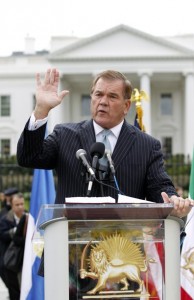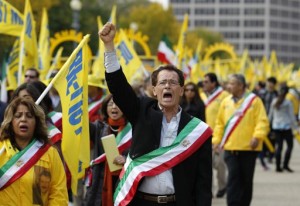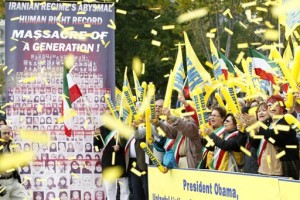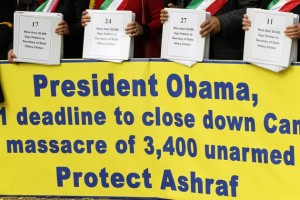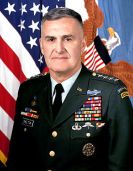The delisting, while long overdue, is a courageous and correct decision by Secretary Clinton
WASHINGTON, Sept. 28, 2012 /PRNewswire-USNewswire/ – The US Committee for Camp Ashraf Residents (USCCAR), representing thousands of Iranian-Americans whose loved ones are facing a humanitarian crisis as refugees in Camp Liberty in Iraq, lauds the removal of the People’s Mojahedin Organization of Iran (PMOI/MEK) from the list of Foreign Terrorist Organizations by Secretary Hillary Clinton.
The dark chapter of the blacklisting of the MEK, the most distinct feature of the policy of placating Iran’s ruling regime, is now behind us. USCCAR is hopeful that this courageous move by Secretary Clinton will provide a new opportunity for the United States to stand with those who seek democratic change by the Iranian people and their resistance movement for a democratic, secular and non-nuclear republic in Iran.
The delisting of the MEK, which all patriotic Iranians in Iran and across the globe, as well as the US Congress and a stellar roster of the most senior US national security and political leaders had called for, was long overdue. Nevertheless, it will go a long way to remove obstacles placed on the path of Iran’s principal opposition movement, the MEK, to realize its ultimate goal of bringing about democratic change in Iran.
As much as the designation has helped the Iranian regime’s allies in Iraq to murder our family members there, we hope that the delisting would enable the United States to facilitate a safe, secure, and humane environment for the residents of Camp Liberty.
To this end, the United States must double its humanitarian efforts for the fulfillment of its “commitment to support the safety and security of the residents throughout the process of their relocation outside of Iraq,” as stated by the August 29, 2012 statement of the State Department’s Spokesperson.
SOURCE: US Committee for Camp Ashraf Residents (USCCAR)
Read the latest car news and check out newest photos, articles, and more from the Car and Driver Blog.
